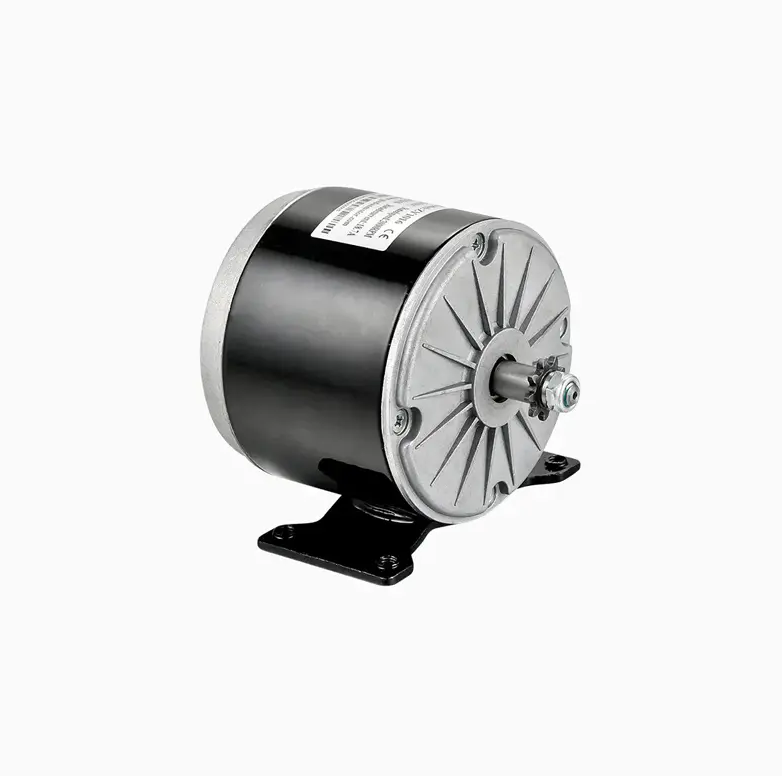Analyzing Performance Variables That Determine the Consistency of Torque in Permanent Magnet DC Motor

When discussing the performance of electric machines, torque output stability is one of the most critical aspects, as it directly impacts the smoothness, efficiency, and reliability of mechanical systems. For a Permanent Magnet DC Motor, several interconnected factors influence whether its torque delivery remains consistent during operation. These factors span from material characteristics to electrical inputs and external working conditions, all of which can either strengthen or weaken stability over time.
One of the most important elements is the quality of the magnetic materials used in the motor. The strength and consistency of the permanent magnets determine the magnetic flux available in the air gap, which directly affects torque generation. High-performance magnets such as neodymium or samarium cobalt are less susceptible to demagnetization and provide more reliable flux density, thus ensuring steadier torque. If the magnets degrade under heat or stress, fluctuations in torque output can occur.
The design of the motor itself also plays a major role. Factors such as the precision of the air gap, the geometry of the rotor and stator, and the winding distribution in the armature all contribute to how smoothly electromagnetic forces translate into torque. An uneven air gap, for instance, can lead to cogging torque, which causes irregular torque pulses. Advanced design techniques, such as skewed slots or optimized pole shapes, are used to reduce this effect and deliver more uniform torque output.
Electrical input conditions are another significant factor. Variations in supply voltage or irregularities in current flow can introduce torque ripple. Since torque in a Permanent Magnet DC Motor is proportional to the armature current, any sudden fluctuation in current results in corresponding fluctuations in torque. High-quality controllers and stable power supplies are therefore essential to maintain consistency, particularly in precision applications like robotics or instrumentation.
Thermal conditions also influence torque stability. Excessive heat not only risks weakening the permanent magnets but also affects resistance in the copper windings. As the temperature rises, winding resistance increases, which can slightly reduce the torque for a given current. Prolonged overheating may lead to permanent performance degradation, which is why effective cooling systems and thermal protections are crucial in maintaining stable operation over long periods.
Mechanical load variations contribute as well. A motor connected to a highly dynamic or uneven load may experience fluctuations in torque as it attempts to adapt to changing demands. Coupling the motor with appropriate control algorithms, such as feedback systems or closed-loop speed and torque controllers, can help stabilize output even under variable load conditions.
Environmental influences, such as vibration, dust, or humidity, can indirectly affect stability if they interfere with bearings, insulation, or magnet protection. Ensuring proper sealing, protective coatings, and durable housing improves resistance to such external factors, allowing torque performance to remain stable in real-world industrial or automotive environments.
In conclusion, the torque stability of a Permanent Magnet DC Motor depends on a combination of material properties, design precision, electrical input quality, thermal management, load characteristics, and environmental protection. Modern engineering practices and control technologies have made it possible to minimize torque ripple and ensure highly consistent output, making these motors a preferred choice in applications where precision, smoothness, and reliability are critical
Key Features:
1. Permanent magnet design
2. Brushed technology
3. Compact and lightweight
4. Wide speed range
5. Long life span
- Art
- Causes
- Crafts
- Dance
- Drinks
- Film
- Fitness
- Food
- Spiele
- Gardening
- Health
- Startseite
- Literature
- Music
- Networking
- Andere
- Party
- Religion
- Shopping
- Sports
- Theater
- Wellness


